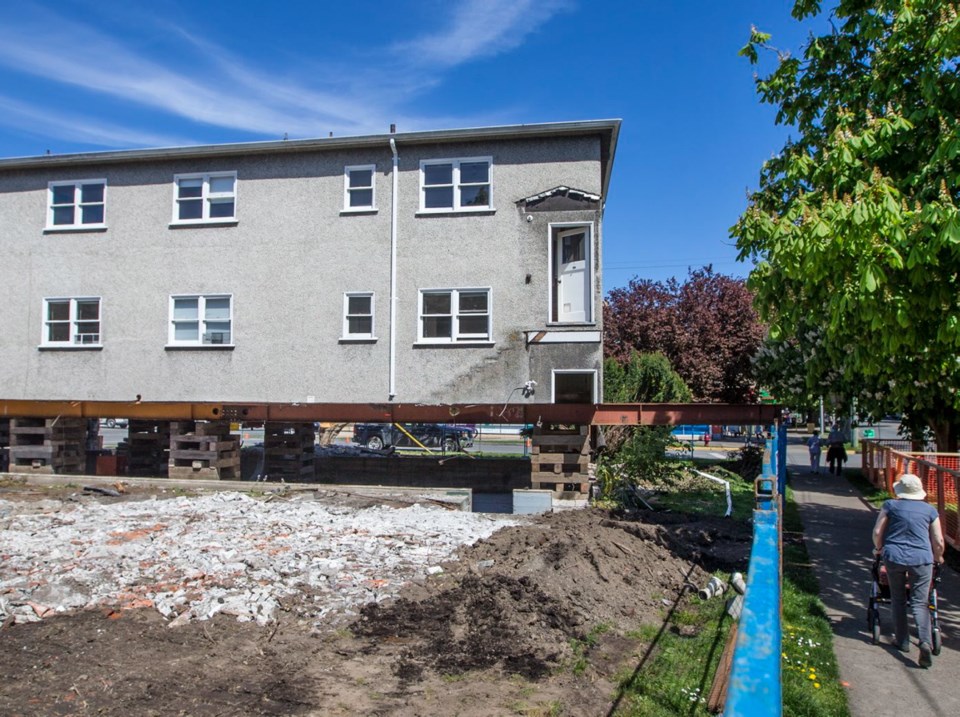 The NDP’s review of Crown corporations and the broader public sector outside is a pretty standard move for a new government, but there’s one target that’s interesting.
The NDP’s review of Crown corporations and the broader public sector outside is a pretty standard move for a new government, but there’s one target that’s interesting.
Finance Minister Carole James has hired independent consultants to “assess the quality of financial information” at selected Crown corporations. The usual suspects are included in the list — flat-broke ICBC, controversy-filled B.C. Hydro, and the sin-based revenue generators, B.C. Lottery Corp. and the Liquor Distribution Branch.
But also on the list is the B.C. Housing Management Commission, a relatively low-profile agency that handles a huge housing mandate.
There’s one particular function at B.C. Housing that the review might focus on — the second mortgage for homeowners that the B.C. Liberal government rolled out this year. The review is supposed to evaluate risks and identify options that will assist the government in sticking to its fiscal plan. The NDP has already raised one option as far as B.C. Housing is concerned — cancelling the mortgage.
The NDP was dubious about it from Day 1 and signalled that its days might be numbered. Former housing critic David Eby, now attorney general, was warning in June before the NDP assumed power that he didn’t think it was working as intended. It arrived at a time when the federal government was trying to cool the housing market by restricting funding, so it appeared to be at cross-purposes.
Liberals budgeted $700 million over three years for the program, saying as many as 43,000 first-time buyers could benefit. They are eligible for up to $37,500 in the form of a 25-year loan, with no interest or principal payments required for the first five years.
NDP Leader John Horgan keyed off the mortgage by campaigning for a $400-a-year benefit to all renters, saying if homeowners were getting government help, renters should be entitled to the same. (That rent subsidy didn’t make the priority list in the government’s budget update this month, but is expected next year.)
Now he’s premier and his finance minister wants “a better picture of the risks, finances and fiscal forecasts of significant Crown corporations.”
The billion-dollar B.C. Housing entity doesn’t normally attract attention like this.
The controversial mortgage it oversees might be part of the reason for the spotlight.
The other part might relate to the NDP campaign promises regarding housing. The government has set targets so astronomically high that B.C. Housing would have to double or triple in size to meet them. The government might be looking for a baseline check on where it stands now.
Liberal backbencher Ralph Sultan devoted some time last week to analyzing the scope of the NDP housing plan.
The platform called for 114,000 new rental, social, co-op and owner-purchase housing units homes over 10 years, built through various partnerships.
An increase of 11,000 units a year is about 25 per cent more than the 41,000 units built in B.C. last year.
The budget this month aimed at providing 3,700 units over three years. The expense breakdown speaks for itself. There’d be 2,000 modular units for the homeless, at $291 million over two years, plus $172 million just for operating costs, such as 24/7 staffing.
The other 1,700 units would be affordable rental housing, costing $208 million over four years. They’d be operated by non-profits, so operating costs would be lower.
That’s a half-billion in capital spending for a scant start on what was promised, not counting the $172 million to operate the modulars.
Sultan’s calculations put the total cost of fulfilling the original promise at $15 billion over the decade.
“But land acquisition costs could easily double all the of the numbers I’ve been quoting.”
He contrasted the plan with the federal government’s new housing plan, which promises $11 billion over a decade across the country.
“Our government is planning to spend more than that, even ignoring the cost of the land, right here in B.C. Go back to the drawing board, Justin.”
He also noted some “internal inconsistencies,” including the budget’s projection of a 30 per cent drop in housing starts over two years, something the Liberal budget also projected.



